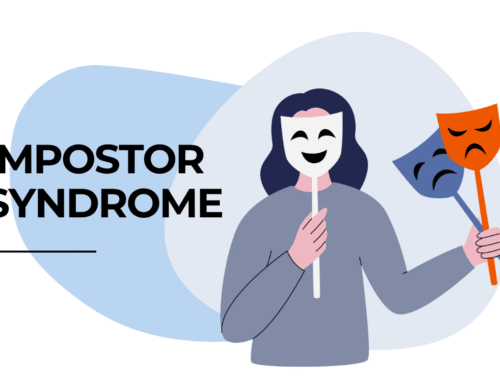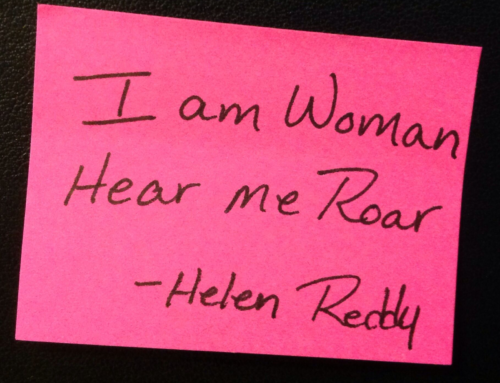 The other day I was walking into the doctor’s office with a head full of nasty thoughts running through my mind. Awful things like, you are such an idiot. OMG, I cannot believe you said that. You are such a loser. How could you be so stupid? People think you’re a dumbass!
The other day I was walking into the doctor’s office with a head full of nasty thoughts running through my mind. Awful things like, you are such an idiot. OMG, I cannot believe you said that. You are such a loser. How could you be so stupid? People think you’re a dumbass!
I wish I could say this was a one-time experience. Sadly, it is not.
Who on earth would say these things? Let alone say them to you or to me? We would never berate someone with hurtful statements like those, but I have a niggling little demon that perches on my shoulder and torments me with self-loathing epithets all day long.
Can you relate? Your demon may use different words and tone, but we all have one. Its name is Inner Critic.
The Inner Critic is a bully. Many times it resembles the voice of our past from our critical growing-up years. Its voices come from Mom, Dad, siblings, and other significant people we interacted with, including teachers and clergy. This Inner Critic is forever a part of our psyche and exists to keep us safe but does so counterproductively. It makes us avoid changes and opportunities because it whispers to us that we are not good enough, we can’t do it, or who the hell do we think we are?
In my experience the only way to deal with this creature is to be aware when she is active and spewing her message in my ear. Like our egos, the Inner Critic cannot be banished from our being, so we have to learn to work with it. My strategy is to imagine a little figure on my shoulder, and when I hear these awful screeds, I stop, confront her, and then pick her up, kicking and flailing, and put her into a jar with a screw-on lid, just like the dragonflies I captured as a child. I find it satisfying to watch the Inner Critic beating her tiny, sharp-knuckled fists against the glass wall while her spiteful insults go blissfully unheard.
That’s exactly what I did on my way to the doctor’s office. That visualization gave me peace and a subtle reassurance that I was indeed OK. This article in Psychology Today offers additional ideas for working with your Inner Critic.
I wish the Inner Critic were the only form of inner dialogue we have to deal with, but other forms arise to plague us, too.
Monkey Mind
According to Buddhist principles, the Monkey Mind describes being unsettled, restless or confused. I see the Monkey Mind differently from the Inner Critic. The Inner Critic is mean and can be bullish. The Monkey Mind is just nonstop chatter. It keeps us distracted and unable to focus. It robs us of our creativity and presence. When we are bombarded with one thought after another, it can be confusing and very chaotic. Learning to quiet the Monkey Mind can be challenging, so here is an article offering 14 Tips to Tame Your Monkey Mind.
Repetitive Thoughts/Rumination
One of the most frustrating inner dialogue processes for me is rumination — the habit of obsessing over negative events that happened in the past. We spend hours upon hours, usually in the middle of the night, trying to make sense of something that has created frustration, some level of threat or insult, something difficult to understand. We go over and over it and have a real difficult time letting it go.
According to Elizabeth Scott in her article How Rumination Differs From Emotional Processing, as a general rule, several factors can indicate that you may have fallen into the trap of rumination:
- Focusing on a problem for more than a few idle minutes
- Feeling worse than you started out feeling
- No movement toward accepting and moving on
- No closer to a viable solution
“We may be trying to make sense of it in our mind, making an attempt to learn from it, or we may just be seeking validation that this should not have happened. Whatever the reason, though, we can’t stop thinking about it, and when we think about it, we become upset,” Elizabeth writes.
Here’s an example. This summer was particularly challenging for a friend of mine. He had experienced a difficult breakup and obsessed over what to do. The rumination was nonstop and his frustration built and built. It was a painful process to witness. So how can we break the habit of rumination?
It’s not easy. We must be consciously aware that we are ruminating and create a separate space to witness the craziness that ruminating causes. In my UPROOT course we focus on how to deal with negative emotions and negative, repetitive thoughts. I offer tools and techniques to recognize and resolve these issues in a healthy and constructive way. My ASPIRE method can be really helpful in these situations. It is always optimal to journal or talk to someone about our thoughts and feelings. This helps us break the cycle and can provide a needed perspective.
Negative Thoughts/Thinking
Do you often struggle with negative thoughts or thinking? It is said that of the thousands of thoughts we have every day, 80% of them are negative. That’s crazy! But the fact is, we all share common negative thoughts. In researching this post I came across an article about the 10 negative thoughts we all have. I highly recommend you read the article for some of the new thought patterns she suggests. Here is the list.
- I am not good enough.
- I can’t do it
- I’m not as lucky as other people
- I don’t think I’ll ever…
- I should be better than I am
- I am not strong enough
- Nobody cares
- I am not smart enough
- If I don’t do well, I’m a failure
- Bad things will happen
Racing Thoughts
Do you ever feel that your mind is galloping as fast and furiously as the last furlong of the Kentucky Derby and your horse is just a nose or two behind? This excellent article by Patricia Harteneck, PhD outlines three key points to remember about why your mind is racing and how to rein it in:
- Racing thoughts are strings of thoughts that are blown out of proportion, have a pattern, consume time, and often have no rational conclusion.
- Racing thoughts can prevent people from living in the present moment and make it difficult for them to complete tasks or fall asleep at night.
Her article gives tips for dealing with racing thoughts include cognitive distancing, using a mantra, and breathing exercises.
Overthinking
According to David A. Clark, PhD, “Overthinking is a prominent characteristic of worry, rumination, and obsessive thinking.”
In my work, the overidentification with the intellect or overthinking, presents as one of the greatest obstacles to self awareness and conscious living. What happens to us never happens at the level of the intellect, it happens through our experience. When we try to think our way through situations, we are limited in our options to find the best solution.
Tony Robbins observes, “A lot of people ask themselves, ‘Why do I overthink?’ and never come up with an answer. But stress and worry are emotions – and you can control your emotions.”
Tony also advises, “Let fear be a counselor and not a jailor.” It’s time to face your fears so you can overcome them — and try Tony’s seven ways to stop overthinking for good.
In doing my research for this blog, I had no idea there were so many ways we hold inner dialogue with ourselves. My hope is that you can identify what’s your go-to thinking pattern and learn more about it through the articles I have presented here.
We can’t avoid or destroy our inner voices. They are part of our human experience. But with awareness and practice, you can learn to manage the voices and make new connections and conscious choices about how you will respond or react to them.
All the best,
Christy




